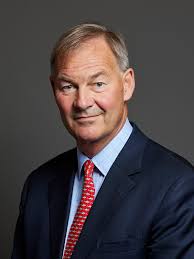Exploring the Legacy of Rupert Lowe in Business

Introduction
Rupert Lowe, a prominent figure in the business landscape of the United Kingdom, has carved out a distinctive niche through his entrepreneurial endeavours. Known for his innovative approach and strategic foresight, Lowe’s impact on various industries has not gone unnoticed, making it crucial to examine his career and the lessons it imparts for aspiring entrepreneurs.
Early Life and Career
Born in 1962 in Epping, Essex, Rupert Lowe’s early education primed him for a career in business. He graduated from the University of East Anglia, where he obtained a degree in economics. His professional journey commenced in the insurance sector, where he rapidly ascended the corporate ladder. By the late 1990s, he founded his first company, which specialised in financial services, showcasing his capability to identify market gaps and trends.
Key Contributions
Rupert Lowe’s influence extends beyond mere entrepreneurship; he has been a significant player in the sports industry as well. As the former chairman of Southampton Football Club, he played a pivotal role in steering the club through critical phases that included financial challenges and its eventual return to top-tier football. His ability to blend business acumen with sports management reflects a unique understanding of brand and community engagement.
Recognition and Achievements
Throughout his career, Lowe has received numerous accolades for his contributions to business and sports. His peer recognition includes being named one of the UK’s most influential businessmen in various industry reports. He is also a regular speaker at business forums, where his insights on entrepreneurship, leadership, and innovation resonate with budding business leaders.
Current Endeavours and Future Outlook
Today, Rupert Lowe continues to influence various sectors, particularly focusing on start-ups and consultancy projects. His advisory role in new ventures reflects his commitment to nurturing the next generation of entrepreneurs. Looking ahead, the emphasis on sustainability and technology in business is likely to shape Lowe’s future initiatives, as he has continually advocated for responsible business practices.
Conclusion
Rupert Lowe stands as a testament to what can be achieved through dedication, vision, and a willingness to adapt. As businesses worldwide navigate an ever-changing environment, Lowe’s strategies and insights provide valuable lessons that can inspire innovation and resilience. For readers keen on business success, understanding Lowe’s journey offers not only motivation but also actionable wisdom for tackling their ventures.









